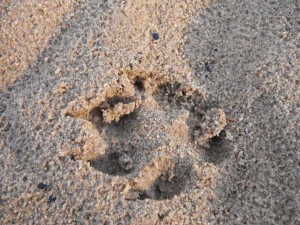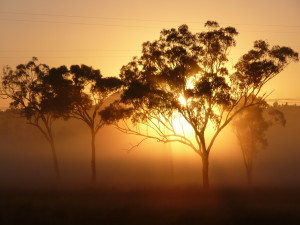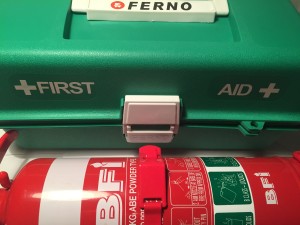This will without a doubt be the most under-read post on this blog. So let’s spice it up a bit… SEX! DRUGS! ROCK AND ROLL!!! Still nothing? Geez the youth of today…
Despite what may seem an obvious conclusion, safety is not sexy. Or interesting. This is a problem because safety is important, incredibly important in fact. What’s the point of finding an amazing crystal or nugget if your venom-riddled, decaying corpse is clutching it at the bottom of a mine shaft?
People – and you are people – need to take safety seriously. If you can’t be bothered carrying a first aid kit or letting someone know where you are, then why should emergency services waste money on rescuing you? Despite the blasé attitude of many Australians our country is constantly trying to kill us. If the snakes and spiders don’t get you, the untouched wilderness, lack of water and drop bears will.
Dingo print in sand
There are some super simple ways to avoid dying while fossicking. First of all, have the right gear. Usually this means having the right vehicle for the terrain or ensuring you have a reliable method of communication for remote areas (e.g. UHF/VHF, satellite phone).
Be careful driving at dawn and dusk as mist and dust can make it difficult to see wildlife and oncoming traffic.
Don’t be stupid. Obviously don’t put yourself (or others!) in risky situations. Don’t enter abandoned workings that have been fenced off, don’t undercut banks, don’t leave home without communicating your plans to someone. Even if you want to drop by the local mining office or send your landowner a text- make sure someone knows WHERE YOU ARE and WHAT YOUR PLANS ARE.
Carry a first aid kit and know how to use it. Preferably don’t fossick alone, but if you must, make sure you have a reliable first aid kit complete with snake bite bandages. Know how to treat medical issues if you get into trouble. One of the worst things you can do if you’ve been bitten by a snake is run for help- the venom will kill you faster! If you are fossicking in a group and have a medical condition such as an allergy or heart disease let someone know. Consider completing a first aid course- it’s usually only a day or two and can be used as a ticket across many industries. We recommend http://stjohn.org.au/first-aid-training.
Keep an eye on the weather. If you are fossicking in a creek or river this is especially important. Getting bogged on the way home is an inconvenience, drowning is seriously annoying! Even if you have clear skies and sunshine, a flash flood may be coming. This is because many watercourses in the drier parts of Australia are ephemeral- meaning they are dry for most of the year but flood like a mofo when it rains anywhere in the catchment (which can be upstream of you). Also keep an eye out for fires in the area. Our personal favourite for weather is https://www.facebook.com/HigginsStormChasing and for fires https://www.facebook.com/QldFireandRescueService.
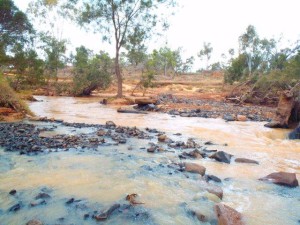
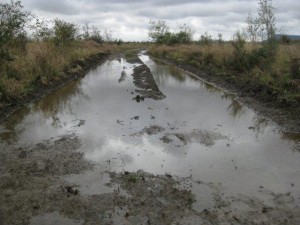 Left: Flash Flooding is a regular occurrence during the wet season in Central Queensland.
Left: Flash Flooding is a regular occurrence during the wet season in Central Queensland.
Right: Property track after heavy rain- no one likes getting bogged!
